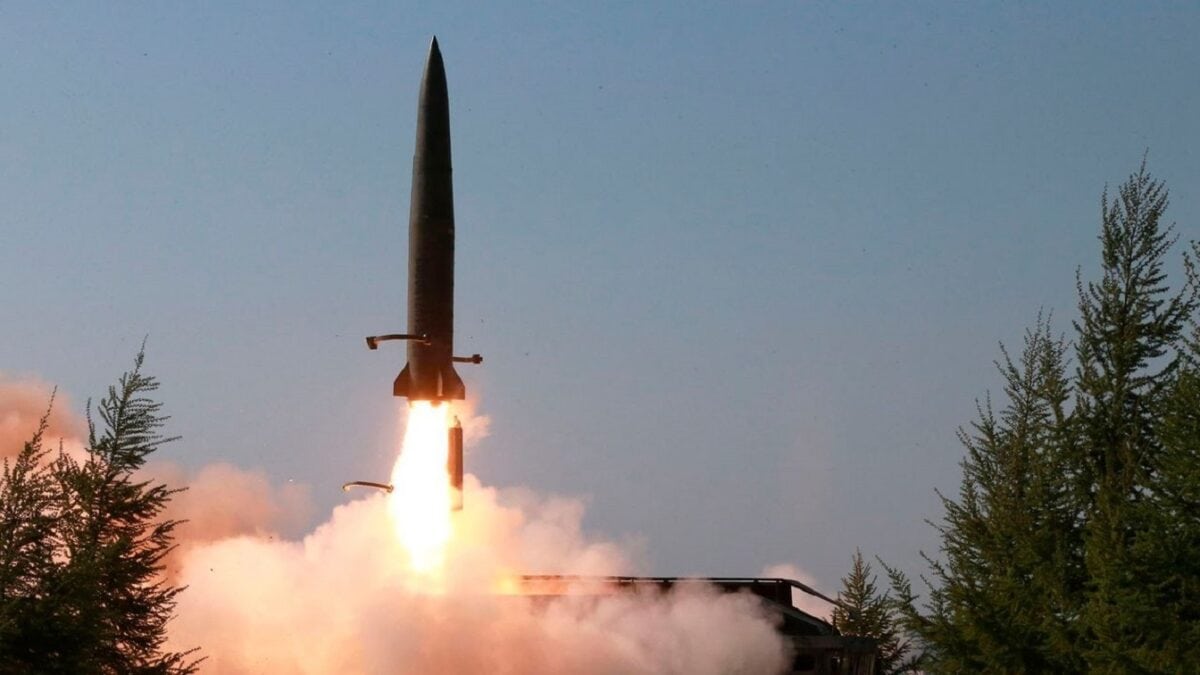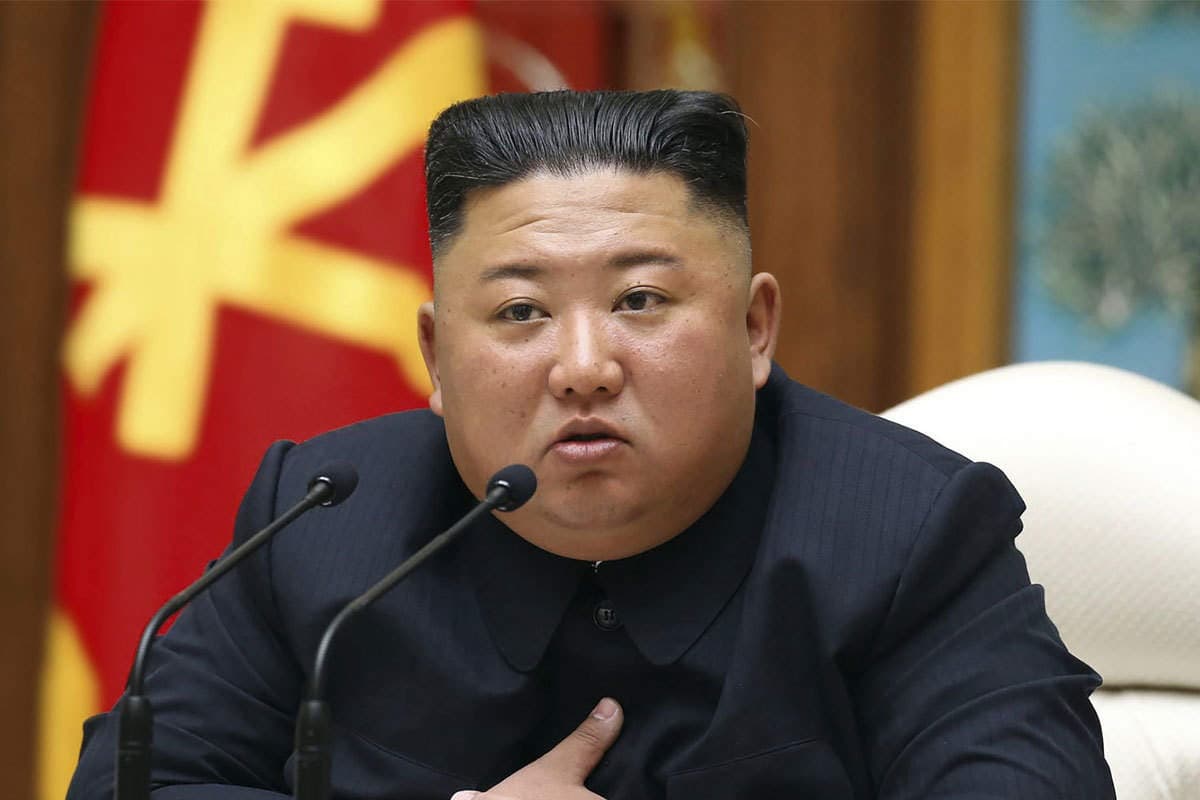North Korean leader Kim Jong Un and Russian President Vladimir Putin affirmed their strong ties during initial talks that hinted Russia will provide military and technological support to North Korea.
During Kim’s trip to Russia — his first trip outside North Korea in four years — he doubled down on his support of Moscow’s invasion of Ukraine, depicting it as a fight to “punish the evil forces that ambitiously pursue hegemony and expansion.”
Putin said he is considering military cooperation with North Korea, though he noted “certain restrictions” resulting from stringent international sanctions on both countries. Strengthened military ties between the two despotic regimes will pose significant challenges to U.S. strategic interests in Europe and Asia.
Growing Threats
A successful North Korea-Russian arms deal would enable Moscow’s continued aggression against Ukraine. In return, Russian military technology could help Pyongyang further refine its rapidly growing missile and conventional weapons forces. Doing so would augment the North Korean military threat to U.S. allies South Korea and Japan.
The Kim-Putin meeting confirms a growing military and diplomatic entente between the two countries, one that has solidified since Russia invaded Ukraine. North Korea was one of few countries that opposed the UN resolution condemning the Russian invasion. Pyongyang recognized the “independence” of Russian-backed separatist regions of Donetsk and Luhansk in eastern Ukraine.
Last year, the U.S. asserted that North Korea had sold “millions of artillery shells and rockets” to Russia. The artillery ammunition likely consisted of 122mm and 152mm artillery shells and rockets, which are compatible with Russian systems.
Washington recently warned that North Korea and Russia were “actively advancing” negotiations for a new arms deal following an exchange of letters by the two leaders “pledging to increase their bilateral cooperation.” In July, Russian Defense Minister Sergei Shoigu traveled to North Korea. During the first visit by a Russian defense minister since 1991, Shoigu was escorted by Kim to an exhibition of North Korean weapons systems. Shoigu reportedly asked Pyongyang to sell more artillery ammunition to Russia and proposed North Korea join Russian-Chinese combined naval exercises for the first time.
An Ambitious but Ambiguous Partnership
Neither Kim nor Putin mentioned specifics of a comprehensive deal. Recent media reporting indicated an agreement could include massive North Korean artillery ammunition sales to support Moscow’s military operations in Ukraine. In return, Russia would support Pyongyang’s ambitions to obtain military reconnaissance satellites and nuclear-powered submarines.
The two leaders might be hesitant to publicly confirm any deal that would constitute violations of numerous UN resolution sanctions, but it appears certain that bilateral military support is forthcoming. Kim’s visits to a Russian civilian rocket launch facility, to civilian and military factories, and to a demonstration of Russia’s Pacific Fleet, allowed him to see the military and civilian technology Putin could provide in return for a new tranche of North Korean ammunition.
Pyongyang and Moscow both suffer from international isolation. They also must confront the material effects of sanctions brought on by their aggressive actions and repeated violations of UN resolutions and international law. Russia’s push for foreign ammunition suppliers, despite its own extensive weapons and ammunition production capability, reflects a desperation to replenish reserves depleted by its high expenditure of ammunition in Ukraine. It also shows how global sanctions have severely restricted Moscow’s supply chains. North Korea languishes after years of self-imposed, draconian Covid restrictions on trade, as well as international sanctions and decades of failed socialist economic policies.
Concerns about a potential arms deal could spur additional measures by European and Asian nations. Although Moscow and Beijing would obstruct any U.S. proposal for new, punitive UN Security Council resolutions, existing resolutions provide sufficient basis for more rigorous sanctions enforcement against both countries.
How Washington Can Lead the Response
The Biden administration should step up its enforcement of U.S. and UN sanctions and work systematically with the international community to target North Korean violators, as well as entities in Russia, China, and elsewhere that facilitate Pyongyang’s transgressions.
The U.S. has taken minimal steps recently to counter the growing collaboration. Washington sanctioned a North Korean national for providing financial, material, or technological support for Yevgeniy Prigozhin of the Wagner Group and for facilitating shipments of munitions to Russia. In August, the U.S. Treasury Department sanctioned three entities that seek to evade sanctions by supporting arms deals between North Korea and Russia. Two of the entities were involved with a previously sanctioned individual who sought to transfer over two dozen kinds of weapons and munitions to Russia in exchange for a range of goods, including raw materials and commodities, to North Korea.
The U.S. should counter the growing North Korean military threat by continuing to strengthen security cooperation with allies South Korea and Japan. Last year, Washington, Seoul, and Tokyo restarted trilateral military exercises. Along with the reinstatement of large-scale U.S.–South Korean exercises, these will increase allied deterrence capabilities.
During a Camp David summit in August, the countries’ three leaders pledged even more extensive trilateral military exercises, real-time exchange of information on North Korean missile launches, and increased cooperation on ballistic missile defense. The leaders’ commitment to consult and coordinate responses to common security threats was a major step forward in trilateral military cooperation but stopped far short of formal alliance.

North Korea Ballistic Missile Test. Image Credit: Creative Commons.
The extensive security agreements reached at Camp David, however, will require greater U.S. commitment to improving its military posture in the Indo–Pacific in a way that offsets advancing Chinese and North Korean capabilities. As it stands today, the U.S. military is not in a strong enough position to fully support the needs and requirements of confronting multiple malign actors across the Indo–Pacific.
About the Author
Bruce Klingner specializes in Korean and Japanese affairs as the senior research fellow for Northeast Asia at The Heritage Foundation’s Asian Studies Center. His analysis and writing about North Korea, South Korea and Japan, as well as related issues, are informed by his 20 years of service at the Central Intelligence Agency and the Defense Intelligence Agency. From 1996 to 2001, Mr. Klingner was CIA’s deputy division chief for Korea, responsible for the analysis of political, military, economic and leadership issues for the president of the United States and other senior U.S. policymakers. In 1993-1994, he was the chief of CIA’s Korea branch, which analyzed military developments during a nuclear crisis with North Korea.

